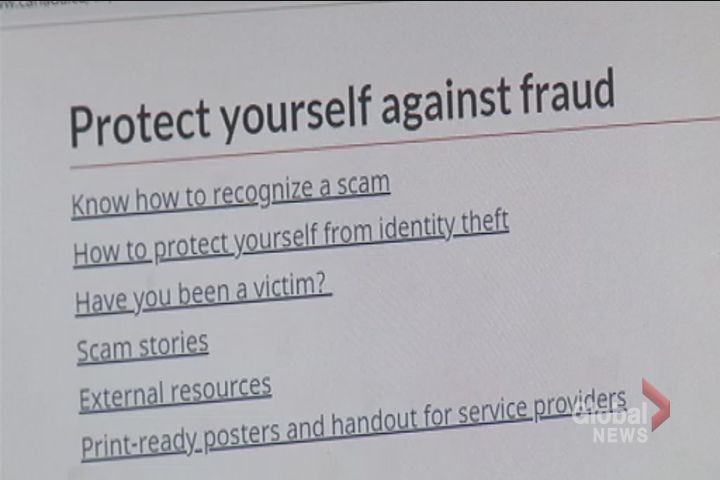Every year in April, millions of Canadians are tasked with taking care of their taxes.

Aside from stacks of forms and receipts, tax season also means potentially dealing with thieves acting as Canadian Revenue Agency (CRA) members, hoping to exploit unsuspecting citizens.
WATCH BELOW (Aired March 4, 2019): Better Business Bureau warns about tax scams

The CRA says swindlers posing as government employees have created such fear in people that the public assumes the CRA will never attempt to contact them.
That’s not true.
It is possible, and legal, for CRA officials to contact taxpayers. However, there are some points that help distinguish authentic employees from fake ones.
WATCH BELOW (Aired Feb. 28, 2019): Suspected tax scam turns out to be real deal for Kelowna woman

The CRA says it will never:
- Ask for information about passports, health cards or driver’s licenses
- Demand immediate payment, especially via e-transfer payments, bitcoin, gift cards, or prepaid credit cards
- Use aggressive language or threaten arrest
- Leave threatening messages or provide personal information
- Email you links to forms requesting personal financial details
- Email you a link to your refund
The CRA says they will never request and be persistent about anyone to take immediate action.
However, the CRA can:
- notify you when a new message or a document, such as a notice of assessment or reassessment, is available for you to view in secure CRA portals such as My Account, My Business Account, or Represent a Client
- ask for details about your account, in the case of a business enquiry
- email you a link to a CRA webpage, form, or publication that you ask for during a telephone call or a meeting with an agent (this is the only case where the CRA will send an email containing links)
- ask for financial information such as the name of your bank and its location
- send you a notice of assessment or reassessment via mail
- ask you to pay an amount you owe through any of the CRA’s payment options
- take legal action to recover the money you owe, if you refuse to pay your debt
- contact you to begin an audit process
The CRA also says it is important to understand exactly what is required for your taxes, and to only share information that you would find on a tax form with anyone.
More information on fraud prevention can be found at Canada.ca/taxes-fraud-prevention.
To report scams, visit antifraudcentre.ca or call 1-888-495-8501.

Comments